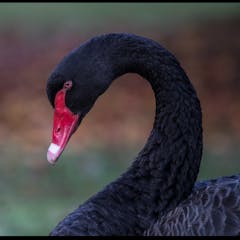
Articles on SARS-CoV-2
Displaying 481 - 500 of 583 articles

COVID-19 and SARS are both deadly – but different. SARS symptoms were quick to appear, making it easier to contain. Because health officials were able to contain it, the virus died off.

The health benefits of exercise for our mind and body are well documented. But did you know that exercise could lower the risks of the most dangerous COVID-19 complication?

Human psychology has evolved to avoid situations that could lead to infection. Behavioral choices now could have long-term effects on how people interact with others and the world.

The science is far from certain, but it appears at least a proportion of people who have had COVID-19 will be protected from another infection – at least initially.

Testing and isolating cases only after they develop symptoms might not be enough to prevent further outbreaks of COVID-19. Sentinel surveillance, by testing randomly in the community, can go further.

Researchers at the University of California, San Francisco, identified nine existing drugs that show promise to treat COVID-19. The proteins they target haven’t been tried before.

The danger of treating COVID-19 as an astronomically rare and improbable event is that we will treat it as such and fail to prepare for the next pandemic. And there will be another pandemic.

Your body can be infected and fight off SARS-CoV-2 without your ever noticing.

COVID-19 causes blood clots in some people. If these clots get into the lungs, brain or heart, they can cut off blood supply and oxygen, causing pulmonary embolisms, strokes or heart attacks.

Who is most likely to survive an infection of the new coronavirus? Two immunologists explain that it is those who mount exactly the right immune response – not too weak, not too strong.

Every time the virus copies itself it makes mistakes, creating a trail that researchers can use to build a family tree with information about where it’s traveled, and when.

The government plans to monitor sewage for the SARS-CoV-2 coronavirus. And while this holds promise to tracking future local outbreaks, there are also some sticky ethical questions to consider.

Ecological systems are at breaking point and a global economic collapse is under way. It’s time to invest in risk mitigation to prevent another COVID-type disaster.

What does high blood sugar have to do with vulnerability to COVID-19? And is there a role for the controversial drug hydroxychloroquine in lowering blood sugar in COVID-19 patients?

A recent study suggested the coronavirus could spread up to four metres. But the evidence isn’t strong enough to suggest we should change social distancing advice from 1.5 metres.

As many as 80% of those infected with coronavirus don’t show symptoms. The reasons why are likely to come down to how your immune system responds to the virus.

This weekly column by our team of international health editors highlights more of the recently published articles from The Conversation’s global network.

South Africa cannot afford to embark on a strategy of extended periodic lockdowns. It needs to shift to mass testing and contact tracing.

After your body fights off an infection, antibodies remain in your blood. Two researchers explain how tests identify these antibodies and what the data can be used for.

At-home mask makers should carefully consider fit and fabric variables when designing face coverings to help prevent transmission of SARS-CoV-2.
